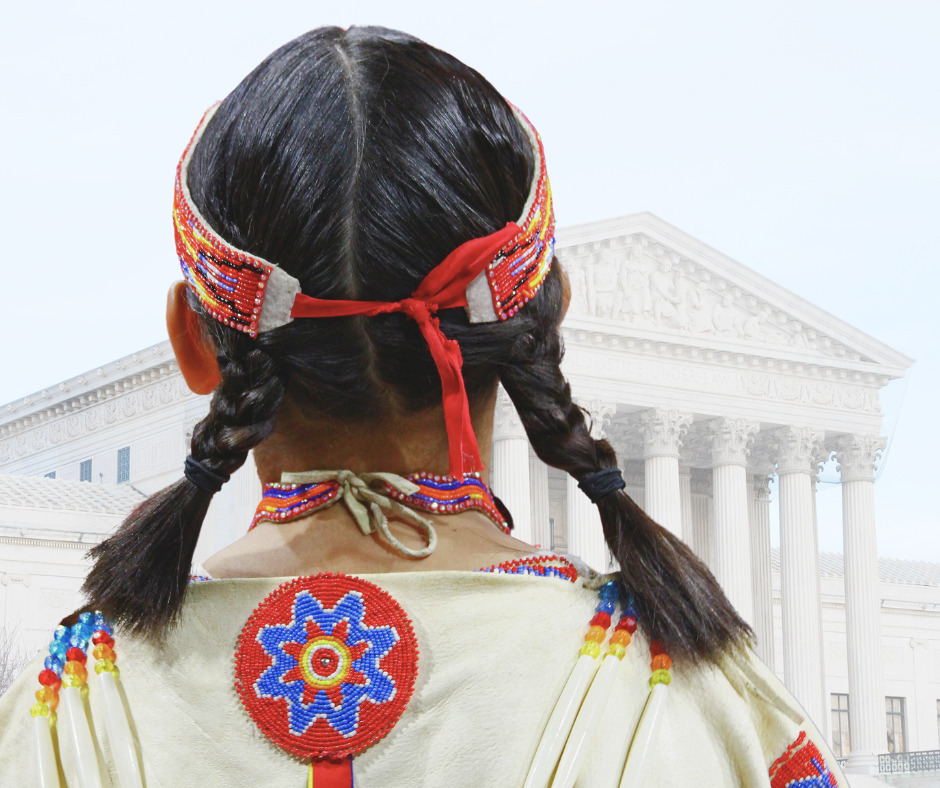Supreme Court Upholds the Indian Child Welfare Act (ICWA) – Giving Tribes Priority in Adoption of Native American Children
Today the Supreme Court upheld the Indian Child Welfare Act (“ICWA”) in its 7-2 decision in Brackeen v. Haaland. This case, brought by the State of Texas and individual plaintiffs seeking to adopt Indian children, challenged the constitutionality of the ICWA. The Supreme Court rejected every challenge raised by the plaintiffs either through outright affirmation of the law or by ruling that the plaintiffs lacked standing for some challenges. We join in the relief and admiration of the hard work done by Native advocates to save ICWA.
ICWA was passed in 1978 with the goal of ending the systematic destruction of Indian families, and by extension Native American Tribes, by adopting out Indian Children to non-tribal homes. This practice, often initiated under spurious circumstances, has been historically very common. ICWA uses federal law to set the bar for the legal standards required to remove an Indian Child from their home higher than under most State laws and implements stricter mandatory steps that must be taken to attempt to reunite the family before adoption. It also creates placement preferences where, if possible, Indian children are to be placed in tribal homes before non-tribal homes.
In Brackeen v. Haaland, the plaintiffs raised several challenges to ICWA. Broadly speaking, the plaintiffs argued that ICWA was unconstitutional because Congress had no constitutional authority to pass the law, that ICWA violated the equal protection clause of the constitution as a race-based policy, violated principles of federalism by commandeering State Courts to carry out Federal laws, and that when ICWA granted Tribes the ability to create their own placement preferences which must be followed by the State Courts, it was an unconstitutional delegation of power to Tribes. While the Fifth Circuit Court of Appeals ruled that some provisions of ICWA unconstitutionally commandeered State courts, today the Supreme Court reversed that portion of the decision and has kept ICWA completely intact.
We are thrilled that ICWA remains good federal law. At the same time, we should remember that this law still only sets the floor for the foster and adoption of Indian Children and that states can, and should, go even further. Ten states currently have state ICWA laws on the books: California, Oregon, Washington, Iowa, Minnesota, Michigan, Nebraska, New Mexico, Wisconsin, and Oklahoma. Many of these state laws offer more than what the federal ICWA law does.
For example, New Mexico’s Indian Family Protection Act, considered the “platinum standard” of child welfare practice, developed and codified the Office of Tribal Affairs within the Children, Youth, and Families Department, and requires a cultural component in case plans, enhanced notice to tribe requirements, and expands the definition of family placements to reflect cultural practices and allowing more opportunities to keep a child within a family.
The Washington State ICWA defines the best interests of the child, and by doing so coordinates the multiple priorities of a child’s interests and a tribe’s sovereignty (RCW 13.38.040(2)). In Nebraska, when the child welfare hotline is called, the worker who answers the phone must inquire whether there is evidence the child might be an Indian Child and must immediately document and report that information to their supervisor (Neb. Rec. State Section 43-1514).
While we celebrate today, we will continue to push for the passage of state ICWA laws. The challenges to the fundamental protections and reasons for ICWA should never have happened, and it is time to bring ICWA to the modern age of full tribal partnership and practices in the protection of their children.


